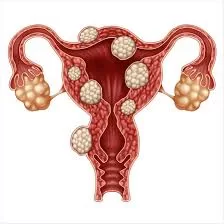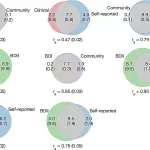Gurugram, August 12, 2024 — The possibility that diabetes may increase the risk of developing uterine fibroids in women has garnered attention among medical experts, though the association remains inconclusive. On Sunday, leading gynecologists and endocrinologists shed light on this complex relationship, emphasizing the need for further research.
Uterine fibroids, benign tumors of the uterus, are a common concern among women, particularly during their childbearing years. Despite their prevalence, the exact cause of uterine fibroids remains elusive, with factors such as genetics and lifestyle playing significant roles.
“The idea that diabetes is linked to uterine fibroids is not proven, but the relationship is complex and still under study,” said Dr. Chetna Jain, Director of the Department of Obstetrics and Gynecology at Cloudnine Group of Hospitals, Gurugram. Dr. Jain highlighted that while there is evidence suggesting that factors associated with diabetes—such as insulin resistance, obesity, and chronic inflammation—may contribute to the development of fibroids, the precise mechanisms behind this potential connection are not fully understood.
According to studies, between 20% and 80% of women develop uterine fibroids by the time they reach 50 years of age, with the highest incidence observed in women in their 40s and early 50s. However, the role of diabetes in this condition remains a topic of debate. Some studies have reported a higher prevalence of uterine fibroids among women with diabetes, but other factors such as age and overall metabolic health also significantly influence fibroid development.
“Many problems, such as pain, heavy menstrual bleeding, and sometimes even infertility due to fibroids, can be exacerbated by the presence of diabetes,” Dr. Jain added. “Thus, while there is a plausible link, it’s not yet conclusive that diabetes directly causes uterine fibroids. The relationship is more likely due to a combination of hormonal, metabolic, and inflammatory processes that are common in both conditions.”
Dr. Dheeraj Kapoor, Chief of Endocrinology at Artemis Hospitals, provided additional insights into the potential connection between diabetes and uterine fibroids. He explained that insulin resistance, a hallmark of diabetes, could lead to elevated levels of insulin and insulin-like growth factors, which promote cell growth, including the growth of fibroids. Furthermore, obesity—a condition frequently associated with type 2 diabetes—is a known risk factor for fibroids.
“Managing blood sugar levels through diet, exercise, and medication can significantly help in reducing the risk of fibroids in people suffering from diabetes,” Dr. Kapoor noted.
The rising incidence of uterine fibroids among young women in India is becoming a major gynecological concern. While the link between diabetes and fibroids is still under investigation, the insights provided by experts underscore the importance of a holistic approach to managing both conditions. Continued research is essential to fully understand this complex relationship and to develop effective strategies for prevention and treatment.
As the medical community delves deeper into this issue, women with diabetes are encouraged to maintain a healthy lifestyle, including proper blood sugar management, to mitigate the potential risk of uterine fibroids and other related health complications.











